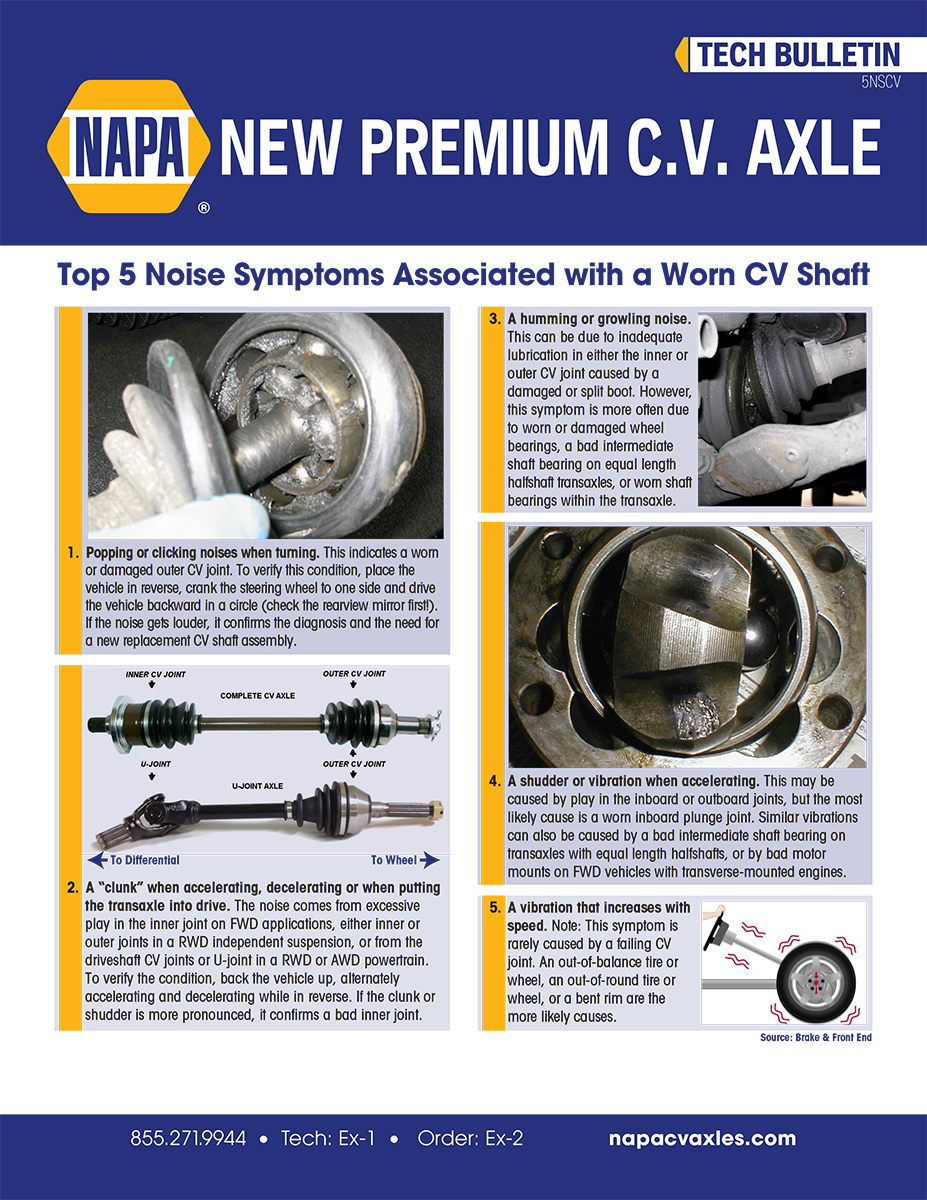Driveshaft noise when decelerating can manifest as a thud or clank sound during shifts, especially in park, neutral, reverse, and drive. It’s usually caused by a faulty u-joint rather than a bad driveshaft itself.
Gears may also produce noise on deceleration if they are worn or have loose pinion-bearing preload. Additionally, a failing ring and pinion gear may generate a whining or howling sound under acceleration. Lack of tooth contact or worn splines on the axle shafts can cause knocking or clicking noises while coasting.
These issues can be diagnosed and repaired to eliminate drivetrain noise during deceleration.

Credit: m.youtube.com
Understanding Driveshaft Noise
Driveshaft noise can be a concerning issue for car owners, especially when decelerating. The driveshaft is an important component of the vehicle’s drivetrain system, responsible for transferring power from the engine to the wheels. It consists of a series of u-joints and a rotating shaft.
- U-joint Wear: The most common cause of driveshaft noise is worn u-joints. When these joints become worn or damaged, they can produce a clanking or thudding sound.
- Imbalanced Driveshaft: An imbalanced or improperly installed driveshaft can lead to vibrations and noise.
- Worn Center Support Bearing: This bearing supports the driveshaft and can wear out over time, resulting in noise.
- Incorrect Driveshaft Alignment: If the driveshaft is not properly aligned with the transmission and differential, it can cause noise.
- Clunking or Thudding Sounds: You may hear clunking or thudding sounds coming from underneath the vehicle when decelerating or shifting gears.
- Vibrations: Excessive vibrations, especially at higher speeds, can indicate driveshaft issues.
- Drivetrain Issues: Driveshaft problems can also affect the overall performance of the drivetrain, causing issues like difficulty shifting gears or reduced acceleration.
If you notice any of these symptoms, it’s important to have your vehicle inspected by a qualified mechanic to diagnose and repair the driveshaft noise.

Credit: napacvaxles.com
Diagnosing Driveshaft Noise
When it comes to diagnosing driveshaft noise, it is important to first identify the type of noise you are experiencing. Common types of driveshaft noise include thud/clank sounds when shifting gears, gear whine on deceleration, and a loud clicking noise from the driveline. These noises can indicate issues with components such as the u-joint, pinion bearings, or ring and pinion gear.
To accurately diagnose the cause of the noise, it is recommended to inspect the driveshaft components. This can involve visually inspecting the u-joint for wear or damage, checking the pinion-bearing preload, and ensuring proper gear setup. Additionally, diagnostic tools such as noise detection devices or vibration analyzers can be used to pinpoint the source of the noise.
Identifying and addressing driveshaft noise issues promptly can prevent further damage to the drivetrain and ensure optimal vehicle performance. If you are unsure about the cause of the noise or need assistance with diagnosis and repair, it is recommended to consult a professional mechanic.
Fixing Driveshaft Noise
When it comes to fixing driveshaft noise, it is important to address issues with the u-joints. A bad u-joint often causes a thud or clank sound when shifting between gears. Additionally, gear and bearing issues can also lead to noises during deceleration. Worn or wearing gears may start to howl, while a bad ring and pinion gear can generate a whine or howling sound under acceleration. Proper maintenance and preventative measures can help prevent driveshaft noise. Regularly checking the splines on the axle shafts and ensuring proper tooth contact can help prevent knocking or clicking sounds. If a driveshaft noise persists, it is important to diagnose and repair the issue quickly to avoid further damage.

Credit: m.youtube.com
Frequently Asked Questions On Driveshaft Noise When Decelerating
What Noise Does A Faulty Drive Shaft Make?
A faulty driveshaft can make a thud/clank sound when shifting between park, neutral, reverse, and drive. It may also produce a noise when decelerating. In most cases, the issue is with the u-joint rather than the driveshaft itself.
What Causes Gear Whine On Deceleration?
Gear whine on deceleration can be caused by worn or wearing gears. If the gears howl during deceleration only, it may be due to loosened pinion-bearing preload.
What Does A Bad Ring And Pinion Sound Like?
A bad ring and pinion can produce a whining or howling noise, especially during acceleration. This sound indicates worn or improperly set up gears.
Why Does My Rear End Make A Noise When Coasting?
If your rear end makes a noise when coasting, it could be due to not enough tooth contact or worn out axle shaft splines. It could also be a sign of a faulty u-joint. Check for worn or failing ring and pinion gears as well.
Conclusion
If you’re experiencing driveshaft noise when decelerating, it’s likely due to issues with the u-joints, pinion bearings, or gear wear. The noise can range from clunking to whining or howling sounds. It’s important to diagnose and address these problems promptly to avoid further damage to your drivetrain.
Regular maintenance and fluid changes can also help prevent driveline issues. If you’re unsure about the cause of the noise, it’s best to consult a professional mechanic for a proper diagnosis and repair.





